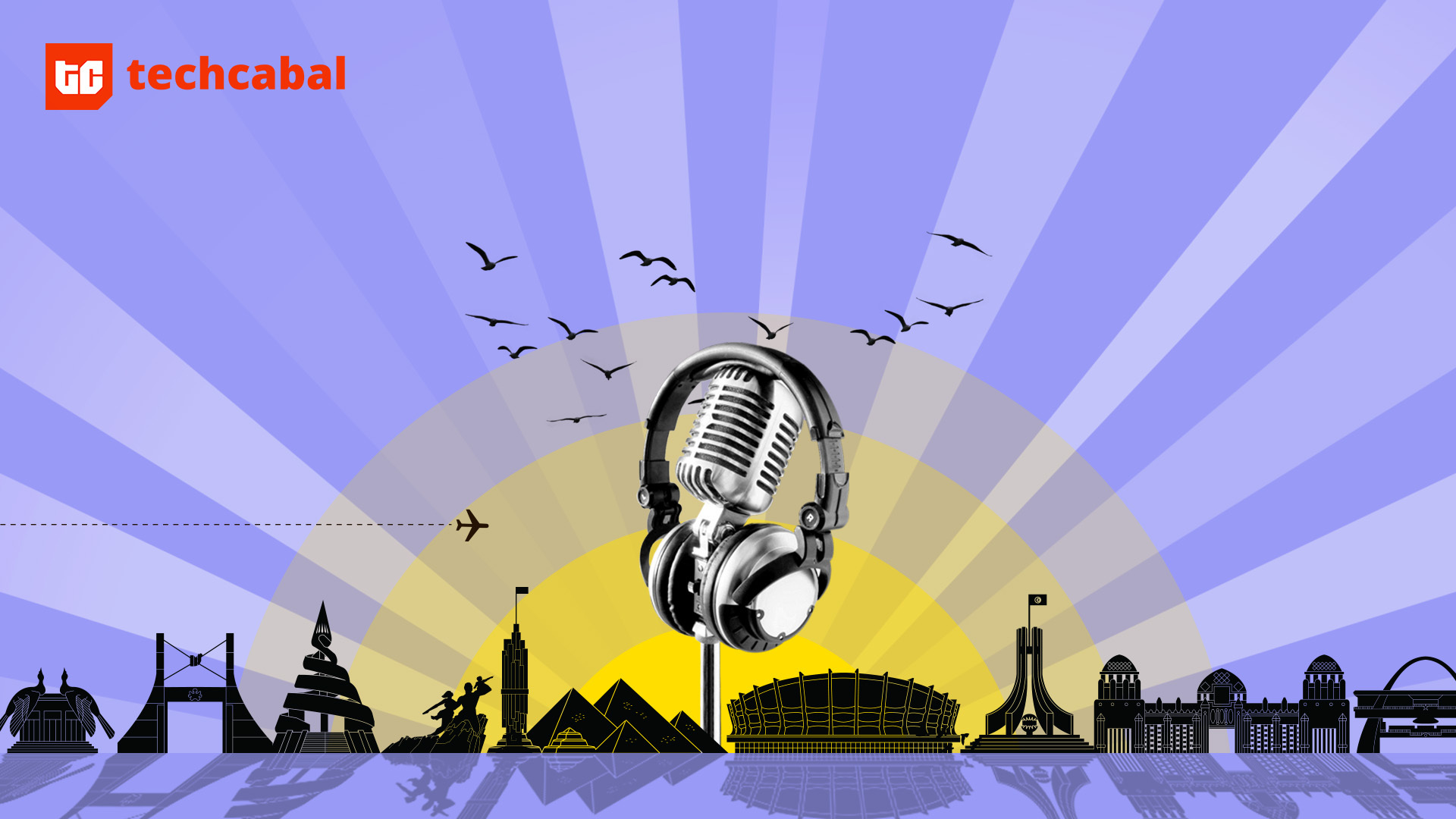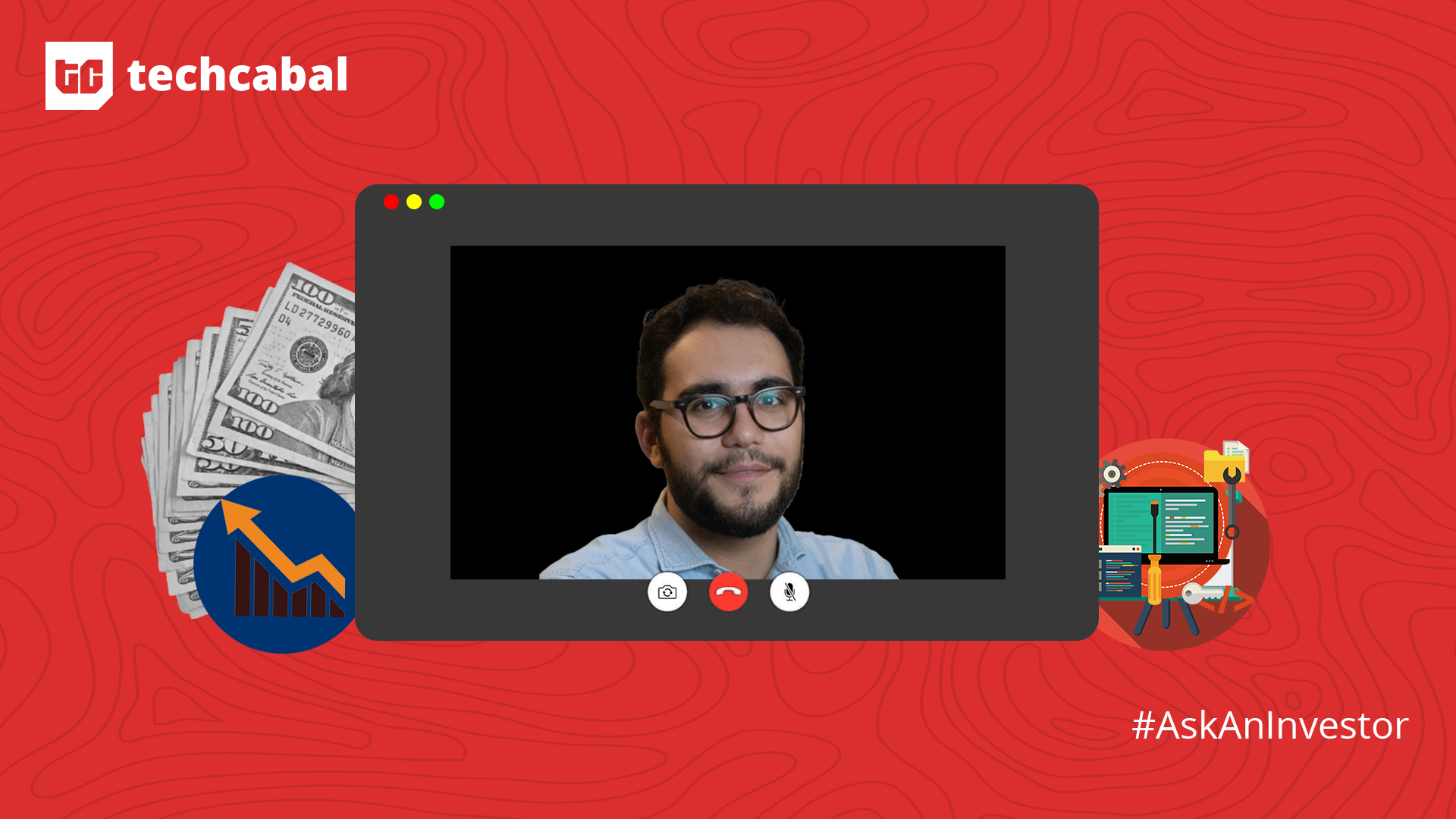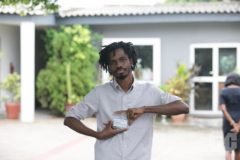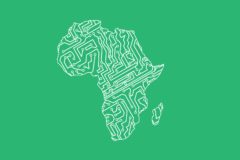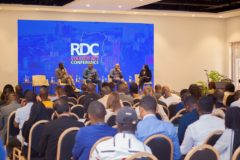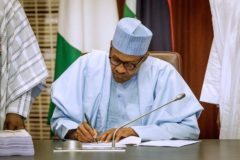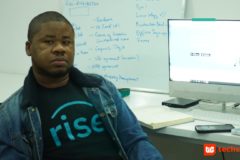The 2014 FIFA world cup was a disappointing one for the Ghanaian national team but also the inspiration behind Ghana’s largest podcast network.
First, there was some drama around the Ghanaian government sending $3 million cash by chartered plane to Brazil to pay the appearance fees owed to the national team. Then, the national team was eliminated a few days later at the group stage, a worse performance than its impressive quarter-finals appearance at the 2010 world cup.
Meanwhile, Aryee, co-founder of Ghana-based podcast network Gold Coast Report (GCR) was getting other ideas. “As sports fans, we wanted to write something about the whole episode which was the talk of the town. We wanted to start a conversation so we started to reach out to writers. But it was very difficult to get people to come together and write consistently,” he told TechCabal.
After 2 years of many failed attempts at kicking off an online publication, Aryee and his co-founder Cyril Afeku turned to podcasts. In 2017, Aryee and the GCR team launched 3 podcasts: The Other Room, a women-focused show, After the Whistle, a sports show and Free your mind, a general talk show that covers lifestyle, culture and arts. They ended up launching 3 podcasts because he realised there were many other stories he wanted to tell through the medium.
Today, GCR’s network of podcasts has 19 shows, a growth that mirrors the rise of podcasting in Africa and the World. Per Insider Intelligence, there are currently over 2 million podcasts and 424.2 million podcast listeners worldwide in 2022, a 10.6% increase from the previous year. As of 2020, the global podcasting market size was valued at $11.46 billion. It grew to $13.785 billion in 2021 and is expected to be a massive $153.07 billion in 2030, according to Acumen Research and Consulting.
This growth has been spurred by the proliferation of new shows (many of which involve celebrity talents), investments from large companies like Spotify, and the increased affordability and availability of technologies such as smartphones and smart speakers that boost awareness and access.
While more Africans on the continent are getting into the podcasting space, it remains more of a passion project that takes many years to become a profit-making venture. Maurice Otieno, Executive director of Kenya-based Baraza Media Lab, believes that Africa’s struggling infrastructure is a major reason for this.
“The internet is not widely distributed and the cost of data is still very high. Once this is sorted, either through investments in the infrastructure or in innovation, then it can become easier to monetize,” Otieno said.
To add, advertising revenue from sponsors is not the same in Africa as in the rest of the world, because Africa receives less than 1% of the global ad spend. Per Insider Intelligence, global ad spend last year was $780 billion while ad spend in Africa was an estimated $5.11 billion. This minuscule ad spend is split across different media platforms in Africa, with TV and radio attracting a larger share of the audience and ad spend.
In Africa, while the radio is still a critical channel for audio content, podcasting is providing African creators with a new way to tell their stories. From Johannesburg to Nairobi, Accra and Lagos, audio creators are starting conversations about their lives and work while tackling social, political and cultural issues like gender norms and inequality head-on.
The first global African podcast festival happened virtually in February 2021, and the organisers shared that the event reached 1.1 million people from 43 countries. Further validation that Africa has a thriving podcast culture.
“Before, when you tell people about podcasts and explain what it is, they immediately reply that it’s the same as radio but now they know better,” Aisha Salaudeen, co-founder of Lagos-based audio and visual storytelling company Twenty-Seven Productions said.
How did we get here?
People love podcasts’ audio familiarity, convenience and lower barrier to entry.
“I think from an audience perspective the biggest attraction to podcasts is that they’re something you can listen to passively—in the car or at the gym,” said Johannesburg-based Justin Norman, founder and host of The Flip Podcast. “And so, as a podcaster, you have a captive audience for that period of time.”
An important factor behind Norman’s decision to choose podcasts as his medium of communication was that audio helps bridge the gap of familiarity between speakers and their audience.
“The podcast format was really important for me because I wanted the audience to hear directly from the expert,” Norman said. “Obviously, I could do that in a newsletter but I thought audio media was really important, from a representation perspective. [For example, listening to] Shola living in Nigeria, talk about Paystack in this Nigerian accent makes a difference.”
Can anyone start a podcast?
Compared to traditional radio which requires operating licenses and videos which demand more technical expertise, podcasts arguably have a lower barrier to entry. You only need to have ideas you wish to share and the right equipment—anyone can start a podcast.
But not all podcasts are the same. Though the ubiquity of smartphones might have lowered the barrier to podcast creation through podcast-making apps, there’s still demand for a well-equipped studio for recording podcasts.
Lagos-based Mosope Alabi-Oyo, host of the Truth Booth podcast is one of such people making studio-grade podcasts. She prefers to carry her recording kit wherever she’s going to interview a podcast guest.
“I know you can record podcasts over an online call but the Nigerian internet network will embarrass you,” Alabi-Oyo said. “Online calls don’t meet the quality I want. I can tell the difference when it’s recorded online and It just doesn’t feel like it.”
38-year-old Nairobi-based musician Dan Aceda saw this market demand for high-quality, studio-produced podcasts and set up SemaBOX, a specialist podcasting studio. The Kenyan-based company offers podcasters and vloggers a range of recording services that are priced between Kes 2,000 ($16) to Kes 35,000 ($292) per episode.
“When you want to be a podcaster or vlogger, there’s a requirement for you to now become a sound engineer or cinematographer,” Aceda said. “You have to learn all these things [if you’re on your own] and that’s what we are taking out.”
Aceda shared that SemaBOX has recorded 700 podcast episodes since it opened up its studio to the public in November 2021. Its top 70 podcasts generated $48,000 cumulatively within the past year, in addition to a $2,000 grant the studio received from Baraza Media Lab.
Aryee’s Ghana-based GCR offers similar assistance to aspiring podcasters. To cater for the growing interest of aspiring podcasters, GCR created an incubator programme where the company picks the 5 best podcast ideas from applicants and helps them develop these ideas into podcasts. The second edition is scheduled to take place in 2023.
“We call them in and then take them through topics such as how to develop a podcast show, recording techniques and social media promotion,” Aryee explained.
The shows on the GCR network are a mix of co-developed shows between aspiring podcasters and GCR experts, as well as already developed shows that want to join the network for support and visibility. Both GCR and SemaBOX offer their incubation services in exchange for a revenue split agreement.
Growing a podcast
Anyone might be able to start a podcast but it takes more to grow the listenership.
For Justin Norman who hosts The Flip Africa, producing quality content makes all the difference. He put out two seasons which garnered thousands of listens before monetising it. In Aryee’s case, the GCR podcast growth was a result of compelling graphic artwork and an effective social media strategy.
African podcasters are exploring innovative ways to distribute their podcasts, from YouTube videos to listening parties and live events.
Take the I Said What I Said podcast for example. Its hosts, Feyikemi Abudu and Jola Ayeye, threw an owambe party in December 2021. Salaudeen of Twenty-Seven Productions explains that: “On the surface, you might be thinking, what are they doing, but people are having fun. They’re building a community for the podcast so that people who missed the party will feel like they should have been part of it.”
This past decade has seen podcasters increasingly take up a video-first approach: creating podcasts for YouTube and then distributing them on other podcast platforms. According to Norman, this new approach is effective because YouTube offers greater distribution than other podcast platforms and a more attractive monetisation potential through AdSense. YouTube currently has more than 2.6 billion monthly active users and generated $7.4 billion from ad revenue in Q2 2022.
For many Africans, YouTube, which comes pre-installed on many android devices, is a primary entry point into the internet, compared to any other podcast app. The fact that it has a visual component also makes it more appealing to Africa’s youth population.
Jola Ayeye, co-host of Nigerian-based podcast I Said What I Said (ISWIS) confirmed the validity of these assertions in an interview with Communiqué. She shared that adding video as a distribution channel in 2021 helped the podcast grow exponentially. “There’s a whole new segment of our audience that doesn’t even know we have an audio podcast. They think it’s just video,” Ayeye said.
Monetising podcasts
Podcasting often starts as a passion project that’s later monetised or a medium to build brand equity. Among 7 podcasters TechCabal spoke to, the most popular means for monetisation were advertising and sponsorship.
“Advertising is the most popular means of monetisation. Brands are paying money to get heard on certain podcasts because people tend to skip fewer ads on podcasts than they do on mediums like video,” Salaudeen said.
Aryee shared that a large podcast listenership helps attract more advertisement revenue, a claim that Norman agrees with but added that it depends on the type of podcast and the target audience.
Norman’s first sponsorship offer came in 2020 after he did a podcast episode on MFS Africa acquiring Beyonic. This got the attention of the pan-African fintech company, MFS Africa, which reached out later for conversations on sponsorship.
“In the case with MFS Africa, they sponsored one season just to start, and after that season they were interested in continuing, so I signed them up to sponsor multiple seasons,” Norman said.
SemaBOX found out that podcasts with a small but loyal audience tend to command high bargaining power and earnings than podcasts with high but fluctuating numbers.
“If a podcast has only about 4,000 listeners, but they always listen and every episode consistently has about 4,000–5,000 listeners, sponsorship partners tend to be very interested.” Aceda, the Kenyan musician said. “This is because they consider this podcast as a nano influencer in that particular space. And so it may seem counterintuitive, but those types of podcasters are making more money than some big podcasters.”
Advertisers also look to the size of the podcast’s social media followership.
Other revenue channels open to African podcasters include live events such as ISWIS’s owambe party, cultural funding opportunities such as Spotify’s $100,000 grant for African creators and even joining advert networks, despite its shortcomings.
At what point do you monetise?
There’s no generally accepted threshold for monetising but Aryee suggested a show with 1,000 listens can start engaging sponsors.
“It depends. For smaller shows that are coming up, you can have a conversation with smaller brands that would just be interested in the kind of numbers that you have,” Aryee said.
Salaudeen, who also hosts and produces the I Like Girls podcast, piloted the first season before reaching out to sponsors. She was able to sign two Nigerian fintech companies Piggvest and Paystack as sponsors for the second season of I Like Girls.
“After the first season, I was able to go to these brands and say, these are the numbers. Let’s talk,” Salaudeen said.
Though sponsorship fees differ among podcasters, a popular approach podcasters admitted to is to compute the cost of production and distribution and then add a margin.
“I just calculated how much I needed to create the number of episodes I wanted,” Salaudeen said. “How much will it cost to hire a team and pay them monthly for six months? How much do we need to distribute the podcast, not just on the podcast distribution platform Transistor but also in terms of getting it to radio, running ads and having a listening party.”
Salaudeen’s case of getting sponsors early on is an exception to the norm for many African podcasters.
Many podcasters like Alabi-Oyo, who’s been running Truth Booth for almost 2 years, are hopeful that soon their passion project will become a profit-making venture. Until then the sense of fulfilment derived from doing something their passionate about is enough to keep at it.
“I like to talk but more importantly, I see the podcast as something I should continue because it’s beyond me. It’s my way of contributing to people’s lives,” Alabi-Oyo said.







